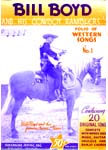



|
 |
|
"My phenomenal reconstruction of Prairie Farmer must get the attention of every advertiser" wrote Burridge D. Butler in 1910, soon after he had purchased the paper and nearly doubled its circulation. "I took an old paper and made it sparkle with freshness." Butler considered his growing newspaper and later his radio station WLS to be "children of his spirit," and in them both he made a real and new attempt to "deal in things which ring true . . . no politics, no schemes, just square-toed affairs," the concerns of the common man and the "underdog". James Evans' insightful book is both a biography of the colorful Burridge D. Butler and a detailed historical analysis of the two major mass media organizations which he came to control early in this century — the Prairie Farmer newspaper and Chicago's WLS radio. After exploring the "inordinate complexity" of the unpredictable Butler, Evans chronicles the history of the Prairie Farmer, and follows its progress under Butler, who, as "father of the Prairie Farmer family," made his newspaper one of the leading farm papers in the Midwest. With the philosophy "Farmers, write for your paper," Butler and his editor Clifford Gregory began a series of campaigns in the Prairie Farmer in behalf of the farmer. Mr. Evans analyzes the newspaper's crusading role in the formation of the American Farm Bureaus Federation, cooperative marketing efforts, farm programs under the New Deal, and other agricultural reforms. "Chicken thieves, slot machines, gypsies, rock phosphate, gillygimpers, muddy roads, crop doctors, wheat prices: these issues and dozens of others like them combined to help give the Prairie Farmer its most striking feature under Butler — a crusading spirit." Evans also traces the history of the radio station WLS from its opening in 1924, when Ethel Barrymore, frozen at the mike, exclaimed "Turn the damned thing off," through its popular farm service programming developed under Butler after 1928, to the sale of the station in 1960. Like the Prairie Farmer, WLS developed a "heart" and a crusading spirit. It featured the famous National Barn Dance, the Dinnerbell program, and the Little Brown Church of the Air. Many WLS stars became national figures — Amos and Andy, Fibber McGee and Molly, Rex Allen, Homer and Jethro, George Gobel, Gene Autry. The severe financial strain upon farmers in the 1920's and 1930's created a need for someone to champion their cause; Prairie Farmer and WLS filled that role, with Butler behind them, ever concerned about his growing "midwest family." About the Author James F. Evans is head of the teaching division of the Office of Agricultural Communications at the University of Illinois. |
Hillbilly-Music.com
Yes, Hillbilly Music. You may perhaps wonder why. You may even snicker. But trust us, soon your feet will start tappin' and before you know it, you'll be comin' back for more...Hillbilly Music.
Hillbilly-music.com ...
It's about the people, the music, the history.
|
Copyright © 2000—2023 Hillbilly-Music.com
|
||||